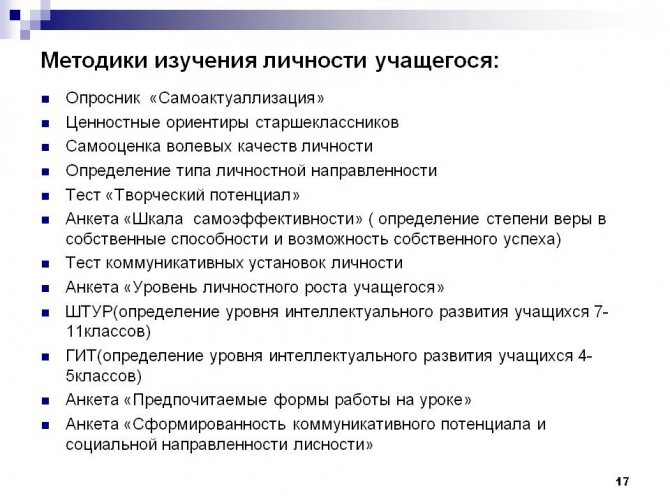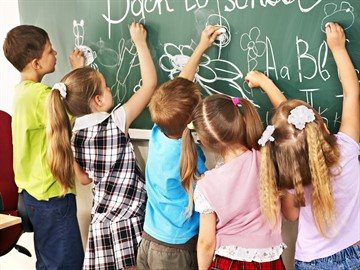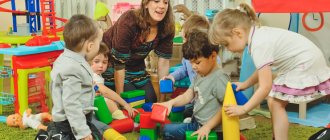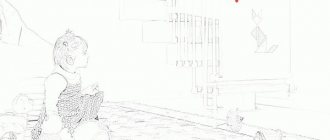Home » Guardianship and adoption » Characteristics of the child under guardianship from the class teacher
1
The transfer of children left without parental care into the care of other persons involves periodic monitoring by the guardianship and trusteeship authorities of such families. Control measures include conducting periodic examinations of the living conditions of the wards, as well as monitoring the moral and psychological state of the child. The dynamics of the development of a minor’s personality can be traced by requesting characteristics for the ward at his place of study.
Purpose and content
Children are the most defenseless in the harsh realities of the cruel modern world. It is with the aim of protecting this category of the planet’s population that special guardianship and trusteeship bodies have been created in each state.
Their powers/official responsibilities include constant monitoring of compliance with the rights of the child in the family, on the street, in educational and other social institutions. Characteristics help to collect and classify complete information about each young child or adolescent.
The document contains maximum information about such factors as:
- social adaptation of a young/minor child;
- the level of his intellectual and mental development;
- character traits, behavioral aspects, hobbies;
- level of material support;
- general psychological comfort of the given environment where the child resides.
Only a person who spends a long time with a minor during the day can provide the above information with a high level of reliability. For example, a class teacher at a school, a circle leader, a school psychologist or a social worker who has been observing the student’s behavior for a long time.
Mechanism for assessing the development of personality traits
In educational institutions, the following specialists are engaged in monitoring the condition and development of the child, as well as providing assistance in difficult situations:
- The class teacher is an employee who spends the most time with the child during school hours and maintains contact with parents or their surrogates.
- A school psychologist is a person with a professional education who examines the state of the child’s soul, identifying pathologies and traumas in the psyche of the observed person.
- A social teacher or social worker maintains contact with the guardianship and trusteeship authorities, collects the necessary information about the child who is being raised in a foster family, if a request has been received from these government agencies.
This is also important to know:
Examples of characteristics of a student who has undergone industrial or pre-graduate internship
The most important work is performed by a psychologist, since it is he who is able to assess the mental and intellectual state of the child under his care accurately and impartially. In the child’s description to the guardianship authorities, the psychologist indicates the child’s indicators, which can be used to determine the overall level of his development. These include the following points:
- Performance level is the student’s level of activity during classes.
- The ability to highlight the most significant points in educational material.
- Level of independent mental activity.
- The ability to work in a certain rhythm.
- The ability to control your behavior in class.
- How consciously the student approaches educational activities.
Based on this knowledge, the psychologist assesses the level of development of the student, which in the future can help adjust the structure of education if the child, for some reason beyond his control, lags behind the curriculum.

When is it necessary to provide a student’s reference to the Department of Guardianship and Trusteeship?
Requests for a complete description of the behavior and social development of a particular child come from the Department of Guardianship and Trusteeship in the following situations:

- if legal proceedings have been initiated regarding the deprivation of parental rights of the father or mother;
- when a police case has been opened against a child/minor, and the child is suspected of committing a criminal or other type of offense;
- if the child’s behavior is noticeably cruel, constant conflicts arise;
- when suicidal tendencies were noticed in the ward;
- if a request has been received to adopt a child, a reference is required for those wishing to adopt at their place of work/place of residence and other situations;
- all dysfunctional, low-income families are under constant control of the guardianship and trusteeship service, as a result of which children from such families must be provided with a complete profile at least once a year.
Mandatory subparagraphs
It is necessary to know the rules for writing characteristics, because... If they are violated, the document drawn up may have no legal force. The document consists of 3 parts.
In the upper right corner (or in the center of the sheet) indicate the personal data of the child for whom the characteristics are being compiled:
- Child's full name;
- place of study, class;
- date of birth, place of residence.
The next part of the document contains the following information:
- date the child entered school;
- the general level of knowledge at the beginning of studies and the acquired skills at the time of writing the characteristics, which subjects are more successfully mastered, what are the difficulties;
- features of thought processes, memory, attentiveness;
- level of health and physical activity;
- psychological adaptation in a team, relationships with peers, teachers;
- student motivation to study.
General reasonable conclusions and forecasts of the author's characteristics. Date/signature.
Dear readers! To solve your problem right now, get a free consultation
— contact the on-duty lawyer in the online chat on the right or call:
+7
— Moscow and region.
+7
— St. Petersburg and region.
8
- Other regions of the Russian Federation
You will not need to waste your time and nerves
- an experienced lawyer will take care of solving all your problems!
Features characteristics for children of primary school and high school students
Both in relation to a written characteristic for a child of primary school, and when writing a characteristic for a high school student, the emphasis is on the level of existing knowledge, learning indicators, and the student’s capabilities/abilities.
Regardless of the student’s age, the characteristic necessarily specifies his psycho-social adaptation: conflicts, mood, behavioral factors, etc.
For a child (primary school student), it is recommended to describe the play activities in which the child participates:

- the nature of his gaming interests (varied or the same type, non-specific or standard, stable or short-term);
- what kind of game plan does the child choose (manipulative, procedural, plot, role-playing themes);
- what kind of gaming behavior is typical (initiative or passive, prefers to play alone or strives for company, is more selfish or has a tendency towards altruism in behavior with peers;
- strives for command and chooses leading roles or is content and feels more comfortable in the second and third places.
Such a report of the student’s behavior will make it possible to clearly trace his socialization and make the necessary adjustments.
Expert opinion
Maria Lokshina
Family law expert since 2010
When compiling a profile for a teenager (i.e., a high school student), more attention should be paid to his activities and hobbies, because It is in this period of life that the foundations of his professional adaptation are laid.
Of course, issues of communication, intellectual, emotional, social lability, psychological stability are important sub-points in the process of crystallization of the real image of a teenager. You shouldn't miss them. Below is an example of a reference for a junior school student to the guardianship and trusteeship authorities.
Flat rent
Emotional, lively, sociable, disciplined, lately she has been reacting aggressively to teachers’ comments and not fulfilling their demands. Has many friends among his peers. A developed sense of collectivism, camaraderie, a sense of duty, and decency. A case of alcohol consumption was noticed (according to the parents). The girl maintains relationships with older boys.
The characterization should not be superficial. The form indicates all aspects related to the attitude to work, the manifestation of the applicant’s professional and personal qualities. Therefore, the provision of as complete data as possible is encouraged.
Sample
Characteristics of the student (class/school)
(child’s first name, patronymic),
residing at:
at the request of the guardianship and trusteeship department
year, day, month.
(Child's name) came to first grade in September 2012. Social adaptation in the class was difficult, communication with children was not easy, the boy was quite complex and avoided active participation in any event (it doesn’t matter whether it was a social assignment or a game).
At the beginning of training, a high level of cognitive processes was revealed. Humanitarian subjects (literature, social studies, etc.) are of particular interest. Loves to draw, look at pictures, listen to fairy tales, stories, music.
The vocabulary is small (perhaps due to infrequent communication with peers). There is inattention and absent-mindedness in behavior, especially if the child does not like the topic of the lesson.
The general level of memorization is average, there are the makings of logical perception, and the figurative type of thinking is well developed.
The boy is friendly by nature and willingly responds to requests. (child's name) has not yet taken a particularly active part in the life of the class. According to the results of sociometry, the child is not a leader, but also does not have a tendency to obey. Listens to the opinions of teachers and parents. The prevailing mood is good.
The school psychologist conducted a diagnosis of intra-family relationships, which gave the following results: the child’s subjective assessment of his family is positive, the child feels more trust in his mother, the relationship with his father is complex. The reason is that the boy’s father is not his own. The presence of negative feelings towards this person is clearly visible in the boy’s conversations and drawings - the child deliberately excluded him from his own inner world. He has not yet determined his place in the family; he is passive and quiet in all relationships with all family members.
During testing (child's name) was in satisfactory psychological and physical condition, without additional tension and overwork.
Date of compilation Class teacher: Full name __________
Teacher-psychologist: Full name ____________
A sample reference for a child to the guardianship authorities from the school is available.
Characteristics of the supervised student
His performance in all subjects is good; he was a drummer in elementary school and in the 5th grade. He does well in all subjects. If he doesn’t understand something, he always comes up or figures it out himself. A little lazy, could be an excellent student.
Does not violate school rules. Outwardly neat, he always goes to classes in a school uniform. Absences from classes are only for a valid reason. He is often an assistant to the class teacher in organizing the class team, and treats everything with humor and kindness. Fulfills teachers' demands and instructions responsibly, understands criticism, and agrees with it. Skills of cultural behavior have been developed, behavior is always conscious.






